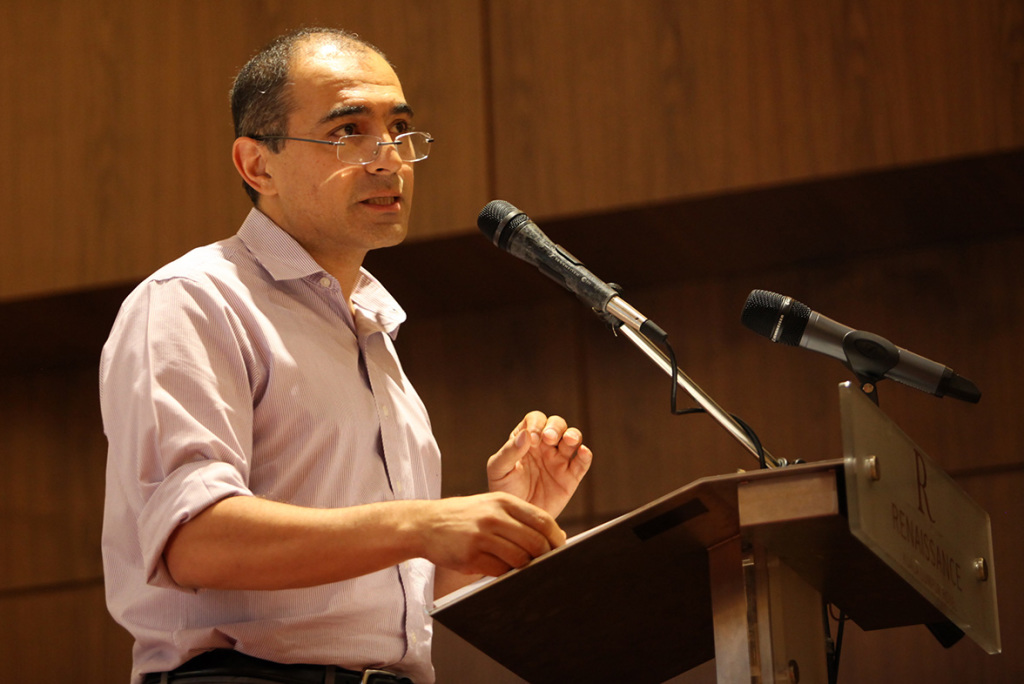
October 10-14
An Iranian-American academic has told a Muslim audience in Malaysia that contemporary Muslims need to come up with a new interpretation of apostasy to reflect freedom of religion and human rights.
Professor Nader Hashemi said for the mainstream interpretation of Islam, apostasy was considered to be a severe offense and punishable by death.
“Muslims think that only one interpretation of apostasy is allowed, but they fail to take certain factors into consideration, including freedom of religion,” he said in a lecture in Kuala Lumpur.
Hashemi is the director of the Center for Middle East Studies and associate professor at the Josef Korbel School of International Studies, both at the University of Denver. Josef Korbel was the father of former US Secretary of State Madeleine Albright.
“When apostasy was first written in the Qoran and Hadith, the Muslim community was very small and still growing,” Hashemi explained.
“Therefore, when an Islamic believer left the religion or embraced another religion, the apostate was punished with the death penalty,” he said, at the Symposium on Islam, Democracy and Secularism.
However, as the world has changed and Islam has grown progressively over the centuries, Hashemi said it is time for contemporary Islamic scholars to embrace new interpretations.
He argued that Islamic scholars needed to adapt to changing times and re-interpret the Qoran and Hadith instead of blindly following the teachings of ancient times.
“Islam is perceived by many to be medieval and barbaric and especially antagonistic to human rights, because the interpretations have not changed with time.
“There should be freedom of religion in Islam, as the Prophet himself advocated, and this should be promoted on a mass level, especially in Malaysia,” which is 60 percent Muslim but has large numbers of Buddhists, Christians and Hindus.
Hashemi acknowledged that it was inevitable there would be fears among the Muslim faithful that the entire structure of the faith might be crushed in the re-interpretation.
“It is quite a feat to balance the integrity of the Islamic faith and to help the religion embrace democracy and human rights at the same time,” he said.
“The new interpretations of Islam should be reconciled with human rights and democracy, and focus on moral and ethical values.”
Hashemi said there were a lot of political forces and movements who were firmly against any re-interpretation of Islam, preferring to continue with the old ways.
“These political forces are also advancing their own personal interests above that of Islam and the faithful. They prefer to maintain their grip on power,” he said, without citing any groups or individuals by name.
But Hashemi said there was a senior cleric in Iran who condemned the death penalty for apostates, arguing the sentence was completely unsustainable morally.
“This is a long-term project which can only be carried out through debates between Muslim scholars and clerics. There must be support for the new voices in the world of Islam.”
Hashemi acknowledged that freedom of religion was always something that was easier said than done but insisted that change had to start somewhere.
“People have already formed strong attachments to their own interpretation of Islam. Trying to shift these beliefs is like trying to shift the Titanic.
“It looks nigh impossible in the beginning but bit-by-bit, it can be done through patience and understanding,” Hashemi said.
Hashemi was born and largely reared in Canada. His parents moved back to Iran in 1980 after the revolution, but stayed only a few years.
He said, “I was old enough to observe a transformative moment not only in the politics of Iran but the broader Middle East. At a young age, it really inculcated in me an interest in the relationship between religion and politics.”
His book, “The People Reloaded: The Green Movement and the Struggle for Iran’s Future,” is intended to “demystify a lot of assumptions people make about the politics of the Muslim world.”
But he added, “My position is not to preach. It is to get my students to think critically.”
Hashemi got his bachelor’s degree from the University of Western Ontario, his master’s at Carleton University in Ontario and his doctorate from the University of Toronto.
His academic career has taken him to the University of Toronto, Northwestern University, Harvard and UCLA. In 2008, he joined the faculty at the University of Denver.
